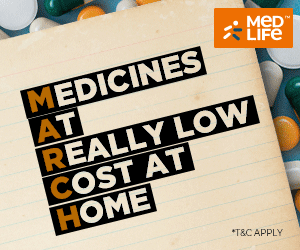Coronavirus: Do COVID-19 vaccines work against new coronavirus variants and mutations?
01/8 Do COVID-19 vaccines work against new variants and mutations of coronavirus?
The arrival of vaccines and priority vaccination campaigns has given us hope that the worst pandemic may be behind us.However, the belief that the pandemic has truly ended the vaccine is not only far-fetched, but the spread of mutations and new variants has raised concerns: they are more contagious and deadly, and most of all, we don't have much information. About ways to prevent it.
So, will the vaccine work against new strains of COVID-19? This is what you want to know now.
02/8 How many COVID mutations are currently active?
Viruses, and any germ in particular, are known to mutate frequently during their life cycle.However, the way the COVID-19 strains continue to spread has alarmed scientists and epidemiologists around the world. Significantly, one new species has sparked cases across the UK, imposed new closures and restrictions, and is slowly starting to affect other countries around the world.
Of all, there are three variants of COVID, in particular, that carry the greatest number of risks: those that emerged from Kent, UK (variant B 1.1.7), South Africa (variant B 1, 351) and Brazil (Variant B 1.1.1) . 28.1 or P.1 variant).
If experts and case studies are to believe, all of these variants are very dangerous and can spread more easily than others. Initial results, which have not yet been peer-reviewed, indicate that the British variant is 56% more contagious and contagious.
Read more
03/8 How does the discovery of new mutations affect vaccines?
Vaccines work by training the immune system to recognize and prevent infectious pathogens from occurring in the future. In short, they work to prevent the virus from entering the body or harming it.While most vaccines are designed to work in a number of situations (hence the long schedule), some vaccines also require an update or additions to be more effective against germs. Take the flu shot, for example. Every year, when strains of the influenza virus are detected, flu vaccines are often modified or additional defenses are offered to prevent a person from getting sick. The same is true for many other vaccines.
However, the problem is emerging with the COVID vaccines, which are not only being developed experimentally, but at a faster time than ever before.
Read more
04/8 Do vaccines work against all variants?
Not only is Covid a disease that has developed recently, but we're still digging deeper to find out more, but the vaccines currently in use are also largely experimental.Most of the vaccines currently in use were also developed at a time when these infectious mutations (especially those in the UK and South Africa) were not important.
However, according to the guidelines of the Centers for Disease Control and Prevention, most vaccines at this time will be able to provide adequate protection against all types of COVID-19. But remember that this information is still under investigation, and since it is a relatively new virus, we do not have concrete evidence to substantiate the claim. So, while it is frightening to hear, it may be too early to predict what COVID vaccines can and cannot protect against.
5/8 Will vaccines be less effective?
The more effective and feasible a vaccine is, the more protection we get.While much of the information is still under review, some experts believe that vaccines may protect against the host virus, but they may be less effective than the promised rate.
06/8 Which of the current vaccinations is more appropriate?
As more information is reviewed, different vaccine manufacturers have conducted clinical studies and research to determine whether their form is safe to use.Pfizer- BionTech, which is used primarily in the UK and US, has published preliminary studies indicating that its vaccine works largely against both types: the UK Kent and the South African variants.
Also recent, maybe a good bet. Early studies, not yet peer-reviewed, indicate that although the vaccine may be highly protective against the virus, it may be slightly less effective.
Close to home, where local vaccine injections are being used, Covaxin and Covishield, the situation for newer variants of COVID is slowly increasing. However, Bharat Biotechnology is based in Hyderabad, Posted promising information that their vaccine works against the variant. Covaxin has been found, even in a clinical study, to be completely effective against mutation. The scientists evaluated the mechanism of the vaccine by performing a plaque reduction neutralization test against genome sequences of the UK variant.
07/8 Should you get vaccinated?
The presence of mutations should not be a reason not to vaccinate.Vaccination is one of the best ways to protect against the virus, which has caused more than 10 million deaths and many more victims. It is also a "safer" and reassuring way to resume normal life, albeit with some precautions.
Even if you doubt the effectiveness of vaccines, remember that preventive methods will be strong enough to slow the spread of the virus and, if anything, increase the chances that the infection will not reach you.
Getting vaccinated will also protect those around you - they may not be able to get vaccinated, but they are more likely to contract the new or old coronavirus.
08/8 What should you do to protect yourself?
Even if active cases decline and vaccination rates rise, this is not a time for indolence.A mutated virus that is said to be more contagious and likely to increase the death rate means that we must take our precautions and take more precautions than usual.
Wear a mask that fits well, wash and disinfect your hands regularly, keep an adequate distance, and limit exposure if possible. Above all, get vaccinated when you get the chance. This is, and will continue to be, the most preventive strategy to slow down the rate of transmission of the virus in general.

















No comments:
Post a Comment